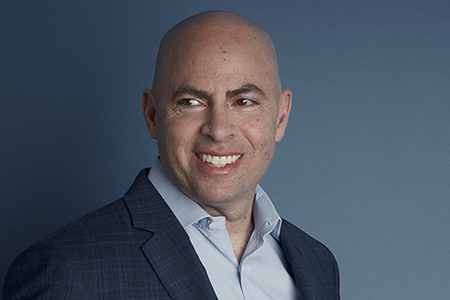Companies To Watch: Adaptive Phage Therapeutics
By Wayne Koberstein, Executive Editor, Life Science Leader
Follow Me On Twitter @WayneKoberstein
A library of antibacterial phages quick-matched to individual patient infections
SNAPSHOT

WHAT’S AT STAKE
Adaptive Phage is a family journey, starting with a father and son. Cofounder and CSO Carl Merril hatched the original idea for the company’s approach to therapeutic phages — viruses that kill bacteria. He was chief of the biochemical genetics lab in the NIH, where he had studied phages since 1965. His concept made its way eventually to the U.S. Navy, where it was the focus of a program to combat antibiotic-resistant bacteria. In the 1980s, an outbreak of infection with resistant bacteria killed 13 patients at the NIH clinical center and revived interest in alternative approaches such as phage therapy. But with phage therapy, the stakes are high, and the game depends on finding a way to make phages work practically and reliably. Safety of phages is well established, but ensuring efficacy has been a big challenge.
Phages are picky. Each phage tends to target only a single bacterial strain. One solution is to bundle phages to target a handful of the most common drug-resistant strains, as has AmpliPhi (CtW March 2018), now Armada. But the elder Merril had a different thought; he proposed building a large library of phages to match every strain that could be identified, together with a test that would reveal which strains were active in each patient. Individual patients would thus have phage cocktails to combat the specific bacteria infecting them.
When Carl Merril retired from the NIH in 2005, one of his former colleagues joined a U.S. military biodefense program to address drug-resistant Acinetobacter baumannii infections in soldiers returning from Iraq — infections with a 70 percent mortality rate. Carl’s son, Greg Merril, CEO and cofounder, describes what followed: “They started to operationalize my father’s idea of building this library, and the military collected environmental samples, including hospital wastewater, and they built a collection by isolating the phages out of the samples. Then they developed a technology that would match this library to a patient’s particular bacterial isolate very rapidly.” Two patients, a professor from California and a baby, initially received this treatment. The professor came back to recover from near death with his infections cleared, while the infant responded to phage therapy but later died from an unrelated illness.
“They had asked my father for his advice on dosing, purification, route of administration, and other aspects of the treatment. They were looking for help to bring it to market, and I’m a serial life science entrepreneur, so when my father told me about this opportunity, I thought this is the biggest thing I could possibly get involved with.” The Merrils secured the worldwide exclusive commercial rights to the PhageBank and its quick-test companion diagnostic technology and started building the new company.
Manufacturing was an immediate early priority. No contractor or existing facility had the right technology for mass producing hundreds of phages for the bank, so the founding team had to construct an aseptic system to avoid the main challenge of cross contamination. Human trials also began early. Financial support for the studies, and for the company in general, has been nondilutive funding from the military and through a research collaboration with the Biological Defense Research Directorate, BDRD, of the U.S. Navy. Besides being a natural solution for Adaptive Phage, this arrangement might evolve into a new model for freeing the industry logjam in antimicrobial R&D.
Vital Statistics
Employees: 30
Headquarters: Gaithersburg, MD
Finances
Total raised: $24M
Investors: Alexandria Venture Investments, TEDCO, HMH Ventures, and a NYSE-traded pharma.
Research partnership funding: U.S. Dept of Defense: Advanced development funding for phage therapy for multi-drug resistant bacterial infections: $10.2 million
Other partners:
- Biological Defense Directorate, Naval Medical Research Center: phage discovery and genomic screening
- Multiple international clinic sites
Latest Updates
January 2020: Awarded initial contract with Department of Defense of $10.2 million
